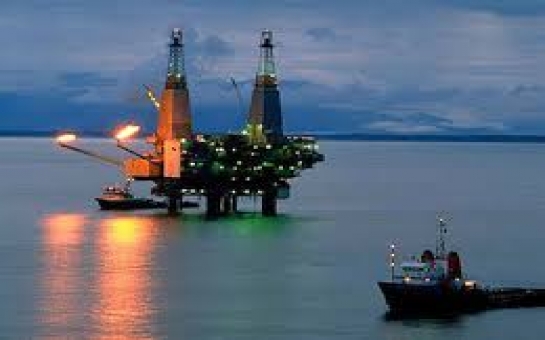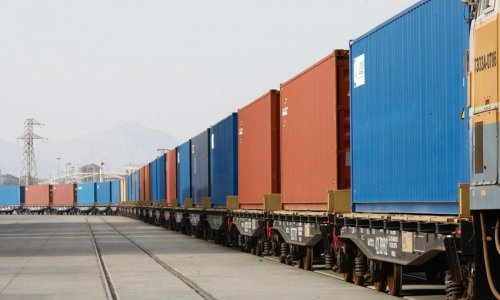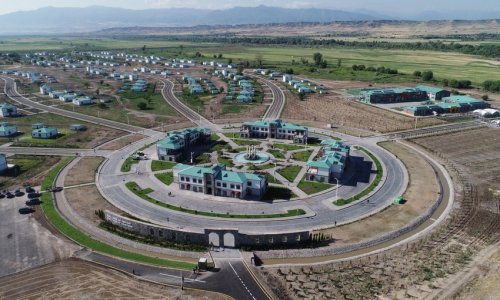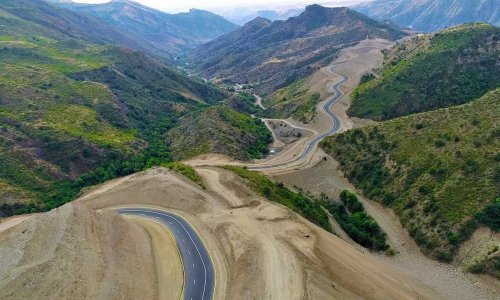By Alex Martinelli
Sometimes we forget history. Take Azerbaijan... A lot of Americans probably couldn't find the country on a map if you gave them three tries.
But for you and I, the history of oil production and how to profit from it starts in Azerbaijan.
It was home to the world's first paraffin factory — opened in 1823.
And the Neft Dashlary, the world's first offshore oilfield, is in the shallow waters of the Caspian Sea off the coast. First completed in 1951, it still produces to this very day.
Although, I'll admit, not as much.
You see, not too long ago, Azerbaijan was an oil powerhouse.
It was exporting almost 1 million barrels a day as recently as 2010, but its fields have matured, and with only 7 billion barrels in proven reserves, Azerbaijan is a little fish whose production is slowing.
However, the winds of change are just offshore...
Shah Deniz Gas Field
Instead of oil, Azerbaijan has struck massive deposits of natural gas.
According to the EIA and Oil and Gas Journal, the country has reserves of 50 trillion cubic feet, and 35 trillion is recoverable with existing technology and economics.
In 2007, Azerbaijan became a net natural gas exporter, ending its reliance on Russian gas for what looks like many, many decades.
And it's all thanks to the discovery of the Shah Deniz field.
First completed in 2006, the deepwater gas- and condensate-rich basin is changing the European energy landscape.
With the reserves in place and cooperation between the State Oil Co. of Azerbaijan Republic (SOCAR) and international conglomerates like BP, the field has been absolutely booming...
Since it's such a young field, you can also bet these numbers are going to continue to grow.
So it only makes sense that Azerbaijan has started exporting a lot of gas instead of importing it from its old parent country, Russia.
Energy Independence = National Independence
In today's tense geopolitical environment — especially in the Caucasus, where Azerbaijan shares borders with Russia, Iran, Armenia, and Georgia — having and controlling natural resources is crucial to the independence of a nation.
This is blatantly evident when you look at the state of affairs in Eastern Europe, where Russia has flexed its energy muscle in Ukraine and is causing anxiety in statehouses all over Europe.
Because the EU relies on Russia for more than a quarter of its natural gas supplies, you simply can't ignore cut-off rumors over the geopolitical fiasco.
With its new wealth of resources, Azerbaijan is looking to solve this problem, too...
Last week, SOCAR agreed on multiple contracts for its Trans-Anatolian natural gas pipeline.
The project could end the Russian monopoly over European energy as Azerbaijan grows its gas production at an incredible rate.
Once completed, it will travel from the Shah Deniz — just offshore from the capital, Baku — through Azerbaijan, into Turkey, and to the Greek border, where it will connect to the Trans Adriatic Pipeline and be shipped through Europe to Italy.
The completion of the pipeline could very well ease the pressure on Europe from Putin's Russia...
But there is a problem here.
Too Long to Wait?
The Trans-Anatolian Pipeline isn't slated to start shipments until 2018, and SOCAR only just closed on contracts for the pipes from Turkey and China.
So the big question is: is this all too little too late?
At first, I was inclined to answer yes, but even if this may not resolve the latest spat between Russia and its former Soviet territory, there's still time for EU leaders to curb their reliance on Russian gas in case of future crises.
Plus, diversifying its sources of energy can only help the EU hedge against future risks.
In the short term, however, the pipeline will have little effect other than as a promising project down the road.
It seems to me the developments closest to fruition are EU countries developing their own shale resources and the rapidly approaching LNG exports from the U.S.A.
Until then, though, Ukraine and the rest of Europe will have to be smart with their energy use.
Bakudaily.Az











